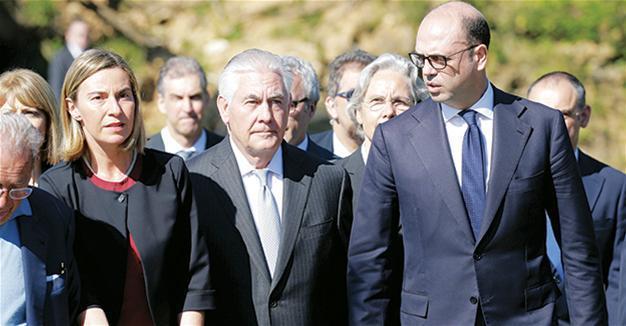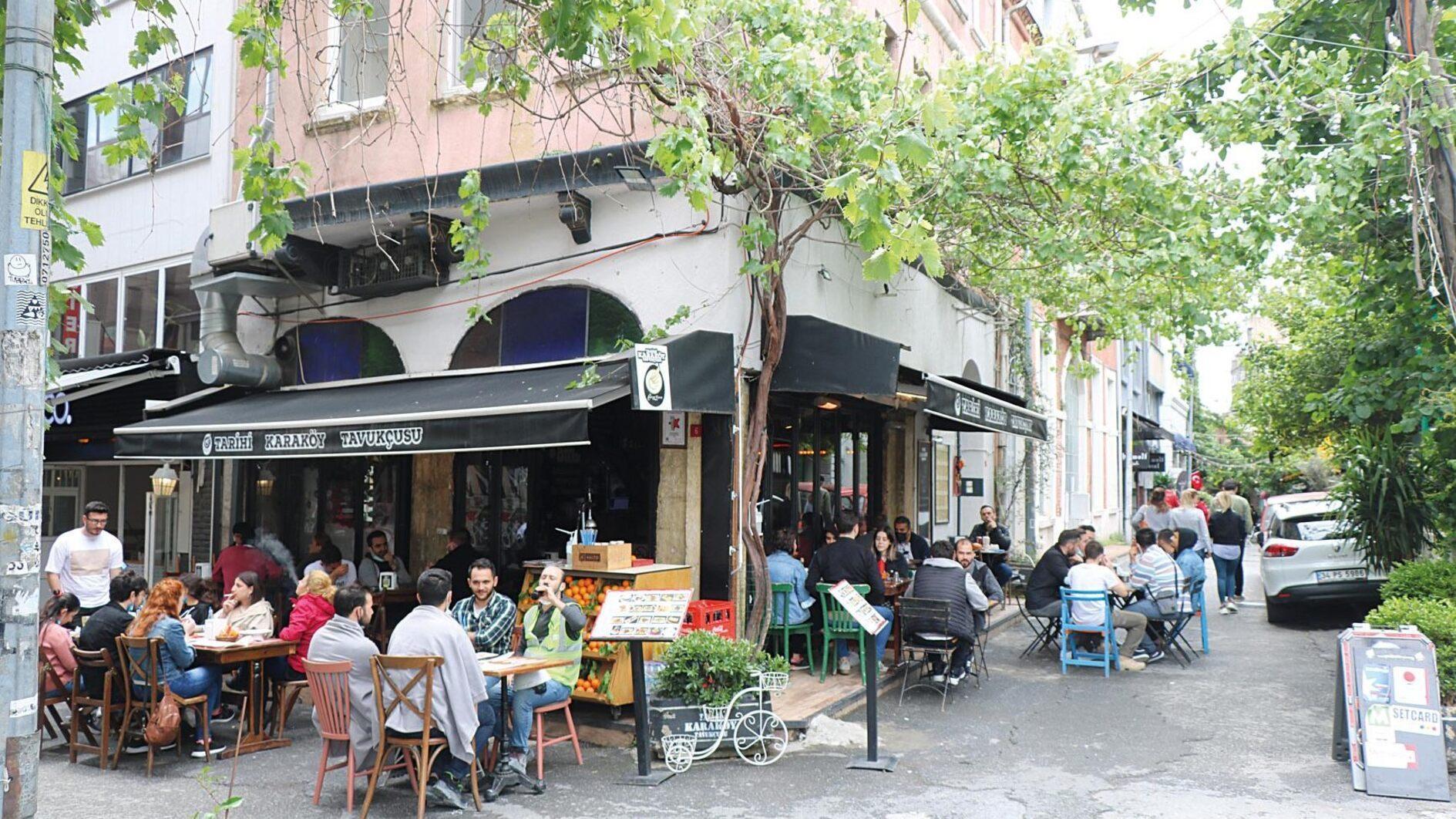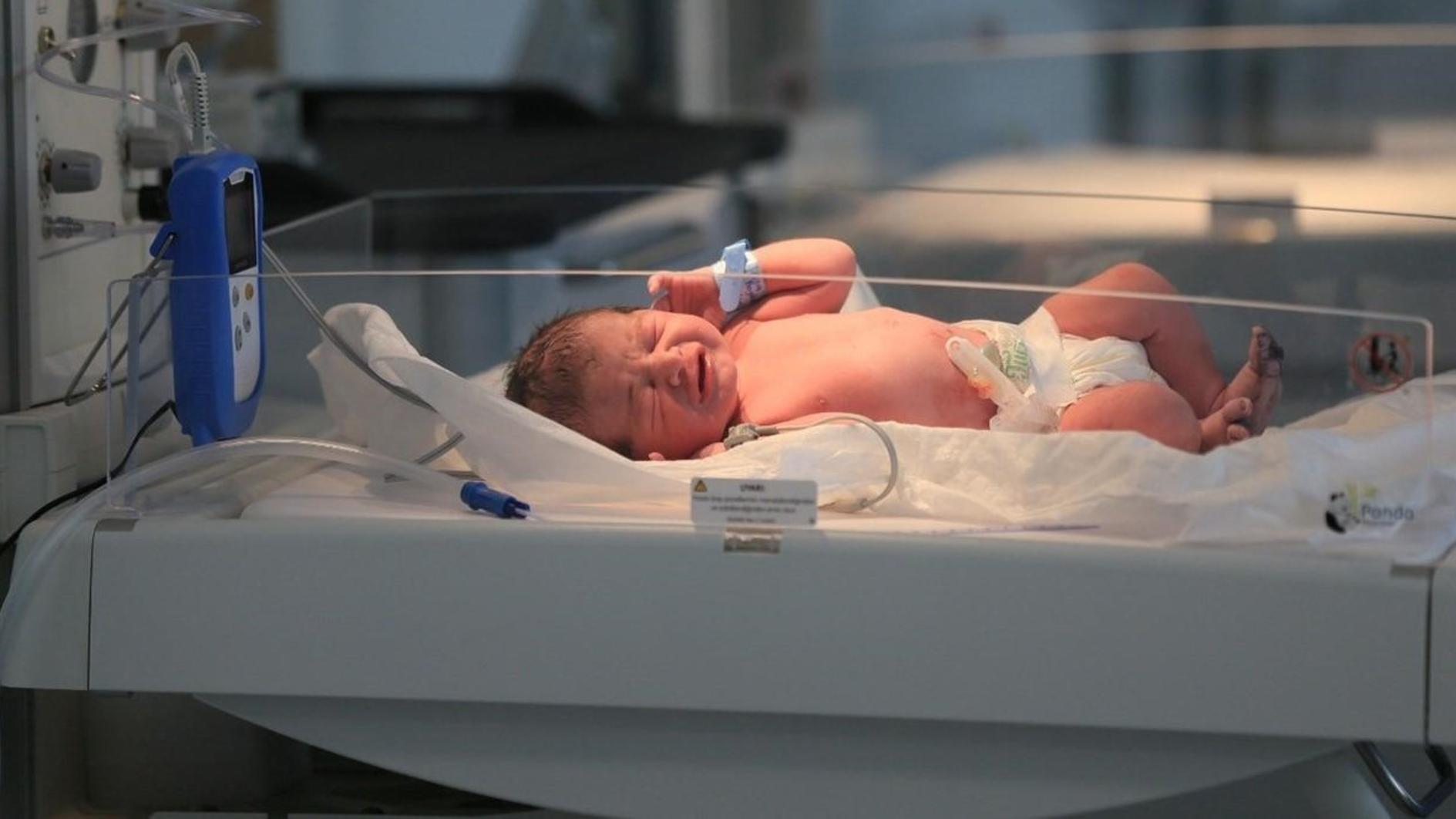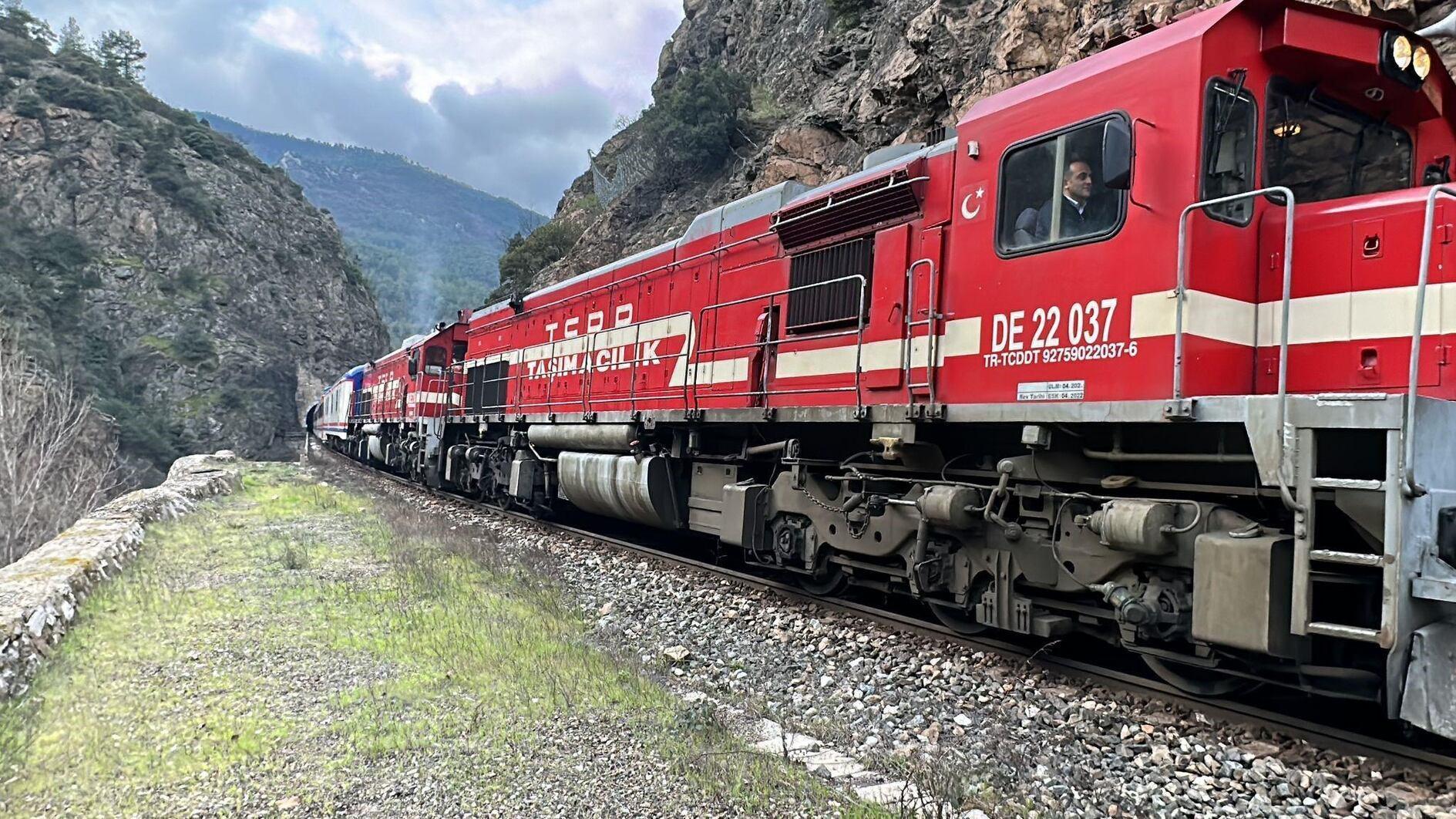US, Russia exchange words over Syria
MOSCOW / WASHINGTON

REUTERS photo
The United States and Russia have exchanged words over the six-year-old Syrian war, with relations between the two states suffering a downturn before the foreign ministers of the two world powers meet tomorrow.U.S. President Donald Trump ordered a missile strike on a Syrian military base last week in retaliation for what Washington and its allies say was a poison gas attack in which scores of civilians were killed.
Moscow says there is no proof that the Syrian military carried out the attack.
The Russian Foreign Ministry said in a statement on April 10 that the missile strike on Syria carried out by the United States on April 7 on the Shayrat Air Base in the north of Syria was an aggressive act against a sovereign state and an action which violated international law.
The statement was released after a phone call between Russian Foreign Minister Sergei Lavrov and his Iranian counterpart, Mohammad Javad Zarif, Reuters reported.
U.S. Secretary of State Rex Tillerson, on the other hand, used a visit on April 10 to a World War II memorial to declare that the United States would stand up to aggressors who harm civilians, as the Trump administration sought to rally world leaders behind a strategy to resolve the protracted civil war in Syria.
“We rededicate ourselves to holding to account any and all who commit crimes against the innocents anywhere in the world,” Tillerson said. “This place will serve as an inspiration to us all.”
Apart from using his meetings with foreign ministers from the Group of Seven industrialized economies to try to persuade leading countries to support the U.S. plan, the top U.S. diplomat will take part in a meeting of “likeminded” nations on Syria, including several Arab nations who have been invited to attend.
From Italy, Tillerson will travel to Moscow, becoming the first Trump administration official to visit Russia.
That trip, too, is fraught with tension over Syria: Tillerson has blamed Russia, al-Assad’s strongest ally, of either complicity or incompetence for allowing al-Assad to possess and use chemical weapons.
The Kremlin said on April 10 that Tillerson would not meet Russian President Vladimir Putin when he visits Moscow on April 12, a move that could point to tensions over the U.S. missile attack on April 7.
Tillerson will meet Lavrov on April 12 in Moscow.
Putin’s spokesman, Dmitry Peskov, told reporters on April 10 that no such meeting was planned, suggesting Tillerson would follow strict diplomatic protocol and only meet his direct counterpart, Lavrov.
“We have not announced any such meetings and right now there is no meeting with Tillerson in the president’s diary,” Peskov told reporters on a conference call.
He did not say why Putin was not planning to receive Tillerson.
Peskov said the U.S. strikes had shown Washington’s total unwillingness to cooperate on Syria.
Reacting to media reports that Tillerson would use his visit to press Moscow to back away from supporting al-Assad, Russia’s biggest Middle East ally, Peskov signaled that was a non-starter.
“Returning to pseudo-attempts to resolve the crisis by repeating mantras that al-Assad must step down cannot help sort things out,” Peskov said.
A joint operations center in Damascus that includes Iran, Russia and Lebanon-based Hezbollah militants threatened reprisals against the U.S. missile strikes.
“What America waged in an aggression on Syria is a crossing of red lines. From now on we will respond with force to any aggressor or any breach of red lines from whoever it is, and America knows our ability to respond well,” said the statement published by the group on media outlet Ilam al-Harbi (War Media), Reuters reported.
Responding to the statement, Peskov said the Kremlin was not aware about the statement.
“We are not aware about that, we cannot confirm that and we do not know where Reuters got this and where these anonymous sources appeared from again,” Peskov told reporters.
If Syria carries out any further chemical attacks, “that is going to be clearly very damaging to U.S.-Russian relations,” Tillerson warned on April 9 on ABC’s “This Week.”
“I do not believe that the Russians want to have worsening relationships with the U.S., but it’s going to take a lot of discussion and a lot of dialogue to better understand what is the relationship that Russia wishes to have with the U.S.,” Tillerson said.
“This was something that they needed to tell al-Assad, ‘Enough is enough.’ And this is something to let Russia know, ‘You know what? We’re not going to have you cover for this regime anymore,’” Nikki Haley, the U.S. ambassador to the United Nations, said on NBC’s “Meet the Press.”
Just days before the chemical attack, Haley and Tillerson both indicated that removing Assad from power was no longer a U.S. priority.
Both Tillerson and H.R. McMaster, Trump’s national security adviser, said defeating the Islamic State of Iraq and the Levant (ISIL) remained the administration’s first priority, with the strategy for stabilizing Syria a longer-term political effort that could involve Russia.
“It’s very difficult to understand how a political solution could result from the continuation from the al-Assad regime,” McMaster said on “Fox News Sunday.”
U.K. Prime Minister Theresa May’s spokesperson said April 10 that Britain was in discussions with international partners on how it could put more pressure on the Syrian government and its supporters, including Russia.
Meanwhile, U.S.-led allied forces and Syrian rebels thwarted a significant ISIL attack on their base near the Jordanian border, according to the anti-ISIL coalition.
The coalition said the April 8 attack on the At-Tanf Garrison was a complex one involving a vehicle-borne improvised explosive device, followed by a ground assault and suicide vests by up to 30 ISIL fighters.
“Coalition and partnered forces defended against the [ISIL] attack with direct fire before destroying enemy assault vehicles and the remaining fighters with multiple coalition airstrikes,” the coalition said in a statement.
















